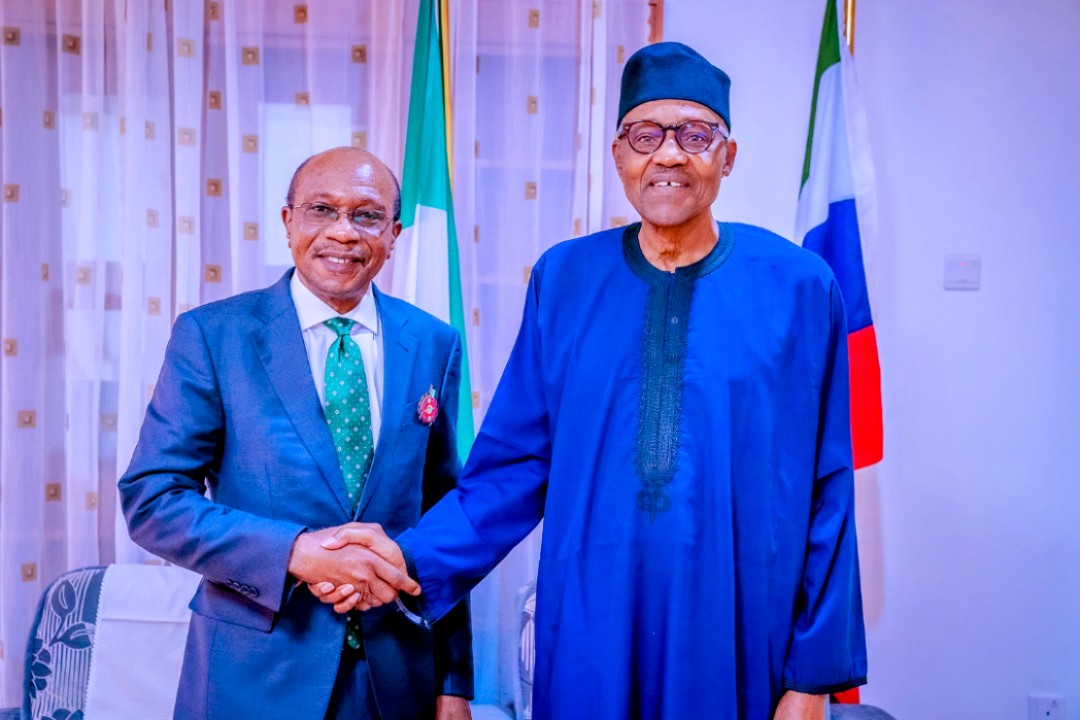By Bassey Udo
Amid the raging criticisms trailing last Wednesday’s policy directive to banks on cash withdrawal limits, the governor of the Central Bank of Nigeria (CBN), Godwin Emefiele, insists there is no going back on its implementation.
On Wednesday, the CBN, through a circular by its Director of Banking Supervision, Haruna Mustafa, to all banks, pegged the maximum weekly cash withdrawals by individual and corporate customers over the counter (OTC) at N100,000 and N500,000 respectively.
Also, the circular pegged the maximum weekly cash withdrawal by customers through the Automated Teller Machine (ATM) at NI00,000 a week, subject to a ceiling of N20,000 cash withdrawal per day.
Under the new policy directive, banks are expected to load only N200 bank notes and below denominations into their ATMs, while the maximum daily cash withdrawal through point of sale (POS) terminals was fixed at N20,000.
Since the announcement, critics have continued to fault the policy as draconian, with both the Senate and House of Representatives calling for its immediate suspension.
The lawmakers warned that the policy would adversely affect normal business transactions and the lives of Nigerians, particularly those in the rural areas, who have no access to the banking system.
But speaking in Daura, Katsina State at the end of his visit to President Muhammadu Buhari on Thursday, Emefiele told reporters there was no going back on the policy, as the CBN was determined to deepen its cashless payment policy introduced in the country almost a decade ago.
The CBN governor said during his brief interaction with the President as part of his routine briefings on the activities of the apex bank and their impacts on the economy, he touched on the issue of the redesigned bank notes and the controversial cash withdrawal limit issue.
Despite the push back by some Nigerians, the CBN governor said the President expressed happiness with policy and encouraged the apex bank to push ahead, as it was in the right direction.
,”The CBN thinks Nigeria as a big country, the biggest economy in Africa, needs to leapfrog into the cashless economy. We cannot continue to allow a situation where over 85 percent of the cash in circulation is outside the banking system. More and more countries that are embracing digitization have gone cashless.
Although he confirmed he would honour the invitation by the National Assembly to brief the lawmakers on the policy, Emefiele explained that the cashless policy introduced since 2012 had to be stepped down on three or four occasions to allow for adequate preparations to deepen the country’s online payment system infrastructure.
He said almost 10 years later, the CBN has deployed its resources to establish a lot of electronic payment channels to help the people conduct banking and financial service transactions in the country.
Contrary to insinuations in certain quarters that the latest policies on currency redesign and cash withdrawal limits were targeted at certain categories of people, Emefiele insisted this was far from the truth, as they aimed at deepening the cashless policy initiated for the good and development of the Nigerian economy.
While appealing to Nigerians to accept the policies the way they are, he reassured the people that the CBN would not be rigid, but would from time to time carry out reviews of their workings.
“It is not to say that we will reverse it. It is not to say that we will change the timing. But whether it is about tweaking some amounts to be a little bit higher or a little bit lower, and all the rest of them.
“We will do so, because we are humans. We want to make sure we make life good for our people. We do not want to make life difficult for them. So, there is no need for anybody to worry. The Central Bank is monitoring what is happening, and I can assure everyone that we are up and alive to our responsibilities, and we will do what is right for Nigeria and Nigerians,” he said.
On claims that the cashless policy would negatively impact businesses, particularly in the rural areas, the CBN governor denied there was no presence of online banking services at the grassroots across the country.
He said to take the policy to the grassroots and deepen the payment system infrastructure, the CBN appointed about 1.4 million super agents operating in all the local governments and villages nationwide to render online financial services.
The super agents, he explained, were different from the normal commercial banks, microfinance banks and other financial institutions.
On preparations to commence issuing the new bank notes into circulation, the CBN governor said the banks, which have already received the newly redesigned currency since on Wednesday, would begin the distribution to their customers immediately ahead of the December 15 deadline for the commencement of the exercise.
While the issuance of the new currency notes would go ahead as scheduled, he said the old currency notes would continue to circulate concurrently with the new as legal tenders until January 31, 2023 when they would cease to be accepted as a means of payment in the country.
He announced that so far the CBN and the banks have successfully recovered more than N1 trillion from circulation into the treasury and bank vaults.




